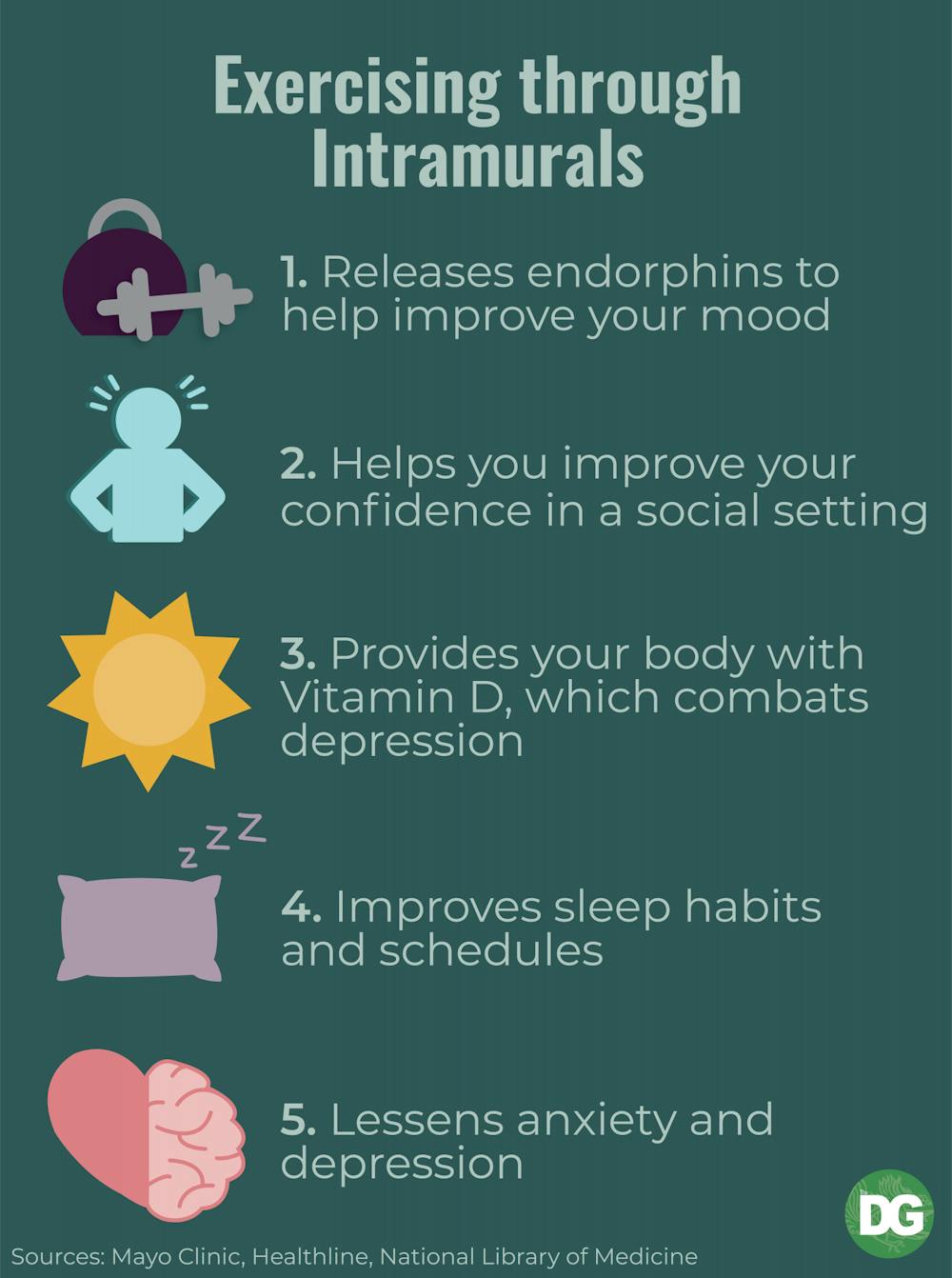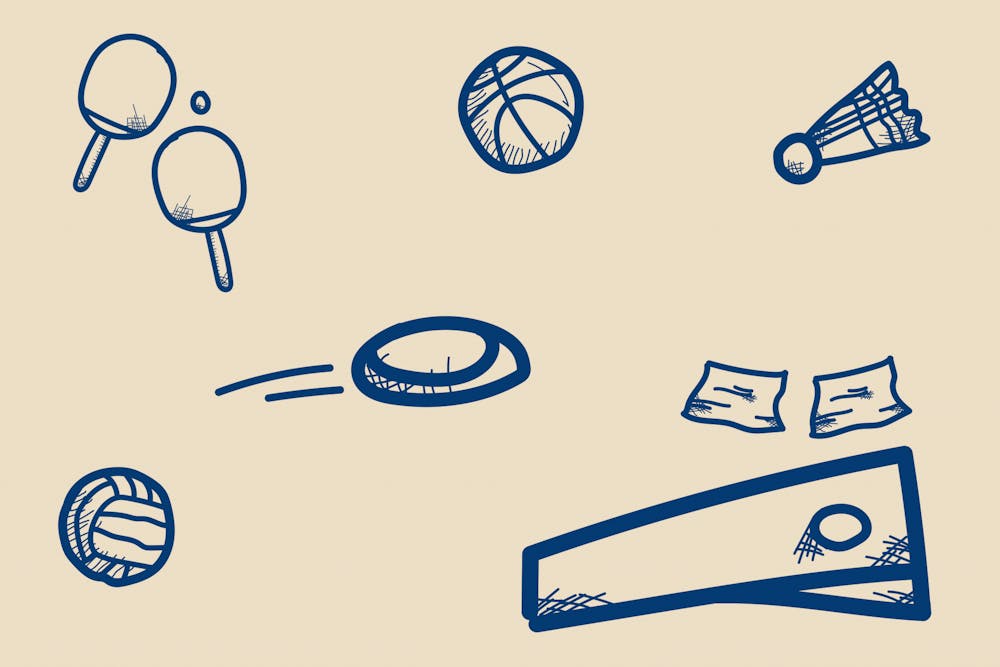As students face daily stressors and anxiety in college, some turn to intramural sports to help curb the mental health struggles that come with everyday life on campus.
Playing an intramural sport creates opportunities for students to get outside and exercise. According to the Cleveland Clinic, exposure to sunshine not only leads to the production of vitamin D within the body, but also serotonin, a neurotransmitter that makes the human body feel good when released. Exercise then releases endorphins, which aids in promoting well-being, according to the Mayo Clinic.
“Scientists and data proves that exercise helps alleviate stress, but I think that it does more than stress, it builds aspects of your character thats help combats the negative aspects of school,” second-year supply chain student Tyler Roach said.
Students often take 15 credit hours every semester, join clubs on campus, engage in social activities and even work a job to stay afloat during their time on campus. Roach said the weight of being in college can be quite overwhelming.
“As a student, that we are tasked with so many hours of homework and extracurricular activities to do,” Roach said. “That much time you spend to study, to learn, to grow as a human and to find a job puts a toll on your mental health … I think that intramurals are a great way of building community and teamwork.”

Playing a sport helps participants share experiences and make friends on a campus with over 27,000 undergraduate students as of October 2022. First-year neuroscience and psychology student Katherine Palmer credits playing intramural sports as an important part of the connections she was able to form early into her freshman year.
“Everyone tells you to join clubs to meet people, but I feel like intramurals are also a really good way to do that because you’re meeting people with similar interests to you,” Palmer said. “I just met a lot of people that I wouldn’t have met otherwise and that also have similar interests to me that don’t just live in my dorm.”
Palmer played in a more relaxed social league during her first semester on campus, which meant limited commitment and competitiveness.
“The social league, it's more chill. Usually, the skill level isn’t as good,” Palmer said. “You play half court 3v3, so it's more fun, it’s less game-like and more for recreation versus actual competition.”
For second-year exercise science student Alex Su, who was transitioning into life at college without being on a sports team, intramural sports were a perfect replica of what was missing. Su played seven intramural sports in the fall and 10 sports last school year, ranging from dodgeball and soccer to frisbee and ping pong.
“When I’m having fun with my friends, it definitely boosts my mental health,” Su said. “Exercise in general, whether it be intramural sports or just working out, is statistically proven to improve mental health.”
Depending on the sport and the competitiveness of the league, the time commitment varies. Su said it can take up about a two-hour chunk each week for games if no practices are held, while Palmer said her more relaxed league only met on a handful of Sundays during the semester.
“It’s a good way to force yourself, especially on a weekend, to be active and you can’t really slack off when you’re part of a team,” Palmer said. “I’ve been playing my whole life, so it's just a good outlet for me, but I would say that it does help just take your mind off of things. When I play sports, I don’t think about anything else, so it's just a nice distraction."

